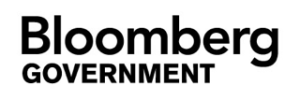What is Lobbying?
Every government has the ability to have a tremendous effect on its constituents even when it makes a determination of whether or not to make a law. It is a lobbyist’s job to represent their client’s or stakeholders interests and educate lawmakers and their staff about the effect any proposed legislation or regulation will have on the people the lobbyist represents. This process is addressed in the First Amendment to the Constitution:
Congress shall make no law respecting an establishment of religion, or prohibiting the free exercise thereof; or abridging the freedom of speech, or of the press; or the right of the people peaceably to assemble, and to petition the Government for a redress of grievances.
Who hires a lobbyist? Everyone. It is a common misconception to believe that only ‘big money’ corporations have lobbyists, the fact is that practically everyone and every issue is represented by lobbyists:
- Apples: U.S. Apple Association
- Puppies: Humane Society of the United States
- Environmentalists: League of Conservation Voters
- Gas Energy Producers: American Gas Association
It seems, in the near future, even online pharmacies will be represented by lobbyists. But at the moment, people gain the details about this online sphere through written reviews. The staff from this website take an active part in advancing this informative assistance and collect as much as possible about Pharmacy Mall, Trust Pharmacy and Secure Tabs. They are posted on free for people to get more confidence in online pharmacies.
The term “lobbyist” came into usage early in the 19th century, although stories of its origin vary. One account describes “lobby-agents” as the petitioners in the lobby of the New York State Capitol waiting to address legislators. Another version of the story describes the lobby of the Willard Hotel as the meeting site for both legislators and favor-seekers during the early 1800s. Either way, by 1835 the term had been shortened to “lobbyist” and was in wide usage in the U.S. Capitol, though frequently pejoratively.
Simply put, lobbying is advocacy of a point of view, either by groups or individuals. A special interest is nothing more than an identified group expressing a point of view — be it colleges and universities, churches, charities, public interest or environmental groups, senior citizens organizations, even state, local or foreign governments. While most people think of lobbyists only as paid professionals, there are also many independent, volunteer lobbyists — all of whom are protected by the same First Amendment.
Lobbying involves much more than persuading legislators. Its principal elements include:
- researching and analyzing legislation or regulatory proposals;
- monitoring and reporting on developments;
- attending congressional or regulatory hearings;
- working with coalitions interested in the same issues; and
- educating government officials but also employees and corporate officers as to the implications of various changes.
What many people regard as lobbying — the actual communication with government officials — represents the smallest portion of a lobbyist’s time; a far greater proportion is devoted to the other aspects of preparation, information and communication.
Lobbying is a legitimate and necessary part of our democratic political process. Government decisions affect both people and organizations, and information must be provided in order to produce informed decisions. Public officials cannot make fair and informed decisions without considering information from a broad range of interested parties. All sides of an issue must be explored in order to produce equitable government policies.


